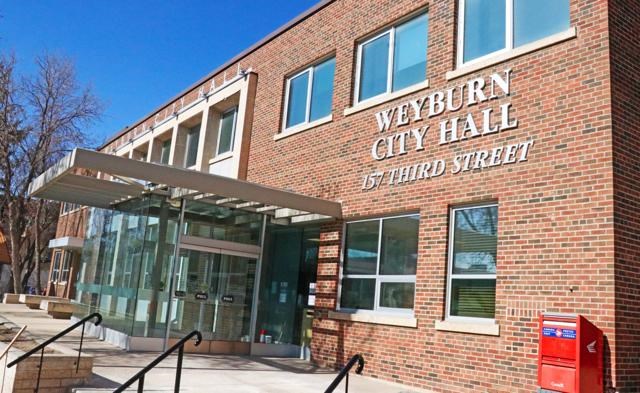The City of Weyburn is doing away with the old model for infrastructure revitalization in favour of a new one which would eliminate the need for funding by local taxpayers in a local improvement program.
City engineer Jennifer Wilkinson presented the facts and figures of how the old local improvement system worked, and what the needs are currently for upgrading roads around the city and moving forward.
Under the system that has been used up until now, the cost of a local improvement, such as repaving of a road or replacement of sidewalks and gutters (or both), would be split between the property owner and the city, roughly a 60-40 split.
These projects could be petitioned out by the majority of property owners being affected, or the project could be initiated by a petition of property owners, with the option also available where the City would set a project with no right of petition against the work.
The last local improvement project in Weyburn was done in 2015, and wasn’t completed until 2017 due to contractor delays. There are currently five local improvement projects still being paid for, and after 2021 there will be three left, with the last one to be paid for by 2024.
Wilkinson noted in her report that most municipalities are also moving away from using the local improvement program to fund road repair projects.
A study of the state of Weyburn’s roads was done by Associated Engineering, with the estimate to address all of the needs to cost a total of $18.7 million. Their recommendation was to invest $1.9 million a year over the next 10 years.
Wilkinson said City administration “does not believe this to be feasible based on the current investment and availability of funds,” and is recommending instead the City invest $700,000 a year to restore and maintain road surfaces.
From the study of the City’s streets, using a “pavement condition rating”, the majority of roads are rated as “good” to “fair”, with about 31 per cent of roads rated as good but due to deteriorate to “fair” in the next few years if no improvements are made.
The City has developed a five-year funding model to care for the city’s roads which will include building up the City’s reserve fund to help pay for future projects.
The funding will come from the Canada Community Building Fund (formerly the Gas Tax Fund), reserve accounts and investment policy gains. Currently, the City has $1.5 million in their local improvement fund.
The recommendation is also for the City to look at future options for funding, such as additional funds from interest earnings, an increase to the mill rate and a review of the Offsite Development Levy to include funding for the infrastructure revitalization program.
“At $700,000, it’s a start. These roads need help, the sidewalks need help. If this is long-term, we have to have funding to make this happen,” said Coun. Dick Michel.
“It doesn’t solve the problem by itself,” added Coun. Ryan Janke. “Council needs to make sure there are enough funds.”
“Although we’re a little bit behind, we can be pro-active,” said Coun. Jeff Richards.
• In other council business, council gave final readings to amend their procedures bylaw, to take effect on Jan. 1, 2022.
Under the bylaw, the times for council meetings will move back to 6 p.m. from its current time of 5 p.m., and the strategic planning and priorities committee meeting will be moved back to 5 p.m.
The amended bylaw will also now give the City provision for holding a council meeting by electronic means if needed.
When meetings were held via zoom due to COVID restrictions, a motion had to be made at the start of each meeting to allow the zoom meeting to be held rather than the in-person version.


